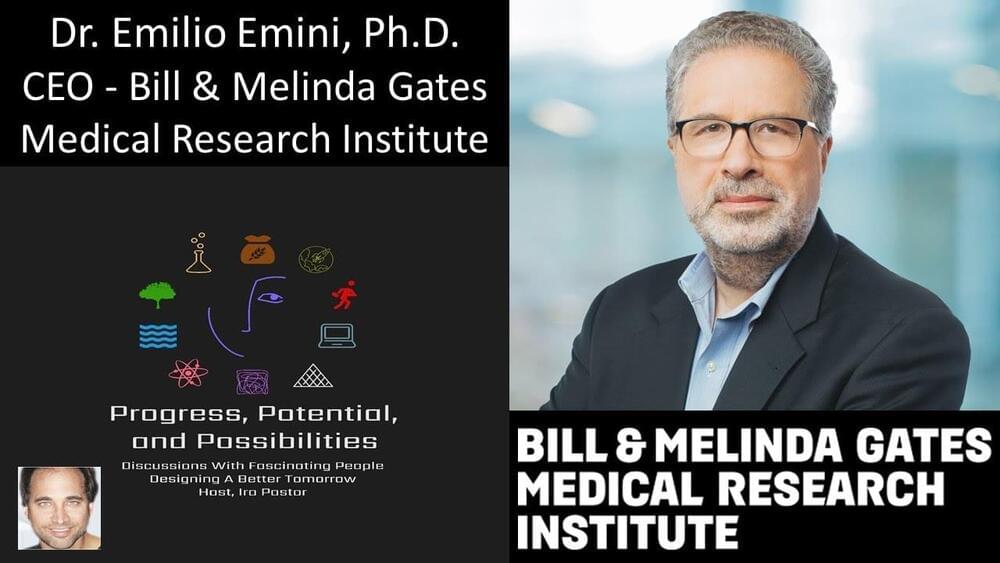Apr 1, 2022
Aging safely reversed in mice by reprogramming cells
Posted by Paul Battista in categories: genetics, life extension
Scientists have managed to safely reverse the signs of aging in mice by genetically reprogramming some of their cells.
Scientists have managed to safely reverse the signs of aging in mice by genetically reprogramming some of their cells.
GABAergic dysfunctions have been implicated in the pathogenesis of schizophrenia, especially the associated cognitive impairments. The GABA synthetic enzyme glutamate decarboxylase 67-kDa isoform (GAD67) encoded by the GAD1 gene is downregulated in the brains of patients with schizophrenia. Furthermore, a patient with schizophrenia harboring a homozygous mutation of GAD1 has recently been discovered. However, it remains unclear whether loss of function of GAD1 leads to the symptoms observed in schizophrenia, including cognitive impairment. One of the obstacles faced in experimental studies to address this issue is the perinatal lethality of Gad1 knockout (KO) mice, which precluded characterization at the adult stage. In the present study, we successfully generated Gad1 KO rats using CRISPR/Cas9 genome editing technology.
Type 1 diabetes is caused by insulin deficiency resulting from immune-mediated destruction of pancreatic beta cells. Its cause is multifactorial, with complex genetic factors and a strong influence of certain HLA types that probably indicates T-cell-mediated disease.1 Despite attempts to halt the autoimmune destruction of the pancreatic islet at disease onset with immunotherapeutic approaches, 1 recovery of pancreatic beta-cell function remains a challenge because type 1 diabetes is not reversible, even early in the disease.
Correspondence from The New England Journal of Medicine — STAT1 Gain of Function, Type 1 Diabetes, and Reversal with JAK Inhibition.
Circa 2017 😀
As the most common subtype of Leber congenital amaurosis (LCA), LCA10 is a severe retinal dystrophy caused by mutations in the CEP290 gene. The most frequent mutation found in patients with LCA10 is a deep intronic mutation in CEP290 that generates a cryptic splice donor site. The large size of the CEP290 gene prevents its use in adeno-associated virus (AAV)-mediated gene augmentation therapy. Here, we show that targeted genomic deletion using the clustered regularly interspaced short palindromic repeats (CRISPR)/Cas9 system represents a promising therapeutic approach for the treatment of patients with LCA10 bearing the CEP290 splice mutation. We generated a cellular model of LCA10 by introducing the CEP290 splice mutation into 293FT cells and we showed that guide RNA pairs coupled with SpCas9 were highly efficient at removing the intronic splice mutation and restoring the expression of wild-type CEP290. In addition, we demonstrated that a dual AAV system could effectively delete an intronic fragment of the Cep290 gene in the mouse retina. To minimize the immune response to prolonged expression of SpCas9, we developed a self-limiting CRISPR/Cas9 system that minimizes the duration of SpCas9 expression. These results support further studies to determine the therapeutic potential of CRISPR/Cas9-based strategies for the treatment of patients with LCA10.
Keywords: CEP290; CRISPR/Cas9; LCA10.
University of Notre Dame researchers have discovered another way tumor cells transfer genetic material to other cells in their microenvironment, causing cancer to spread.
In their latest study, published in Cell Reports, Crislyn D’Souza-Schorey, the Morris Pollard Professor in the Department of Biological Sciences, and collaborators discovered that DNA “cargo” is transported in small informational sacs called extracellular microvesicles. Their study is a continuation of work her lab has undertaken to further understand the sharing of information between cells.
“We’ve shown that DNA present in these microvesicles is related to metastasis, so now we have a great platform to assess for genetic aberrations,” said D’Souza-Schorey, who is also affiliated with the Berthiaume Institute for Precision Health, the Boler-Parseghian Center for Rare and Neglected Diseases and the Harper Cancer Research Institute.
Scientists at La Jolla Institute for Immunology (LJI) have found that people with Parkinson’s disease have a clear “genetic signature” of the disease in their memory T cells. The scientists hope that targeting these genes may open the door to new Parkinson’s treatments and diagnostics.

Biomedical Interventions For Substantial Global Health Concerns — Dr. Emilio Emini, Ph.D., CEO, Bill & Melinda Gates Medical Research Institute
Dr. Emilio A. Emini, Ph.D. is the CEO of the Bill & Melinda Gates Medical Research Institute (https://www.gatesmri.org/), a non-profit organization dedicated to the development and effective use of novel biomedical interventions addressing substantial global health concerns, for which investment incentives are limited, and he leads the Institute’s research and development of novel products and interventions for diseases disproportionately impacting the world’s most vulnerable populations.
Continue reading “Dr. Emilio Emini, Ph.D. — CEO — Bill & Melinda Gates Medical Research Institute” »
For many decades, evolutionary biologists assumed that the changes in DNA, known as mutations, occur irrespective of any consequences for the organism. A team led by Professor Detlef Weigel, Director at the Max Planck Institute …
The amphibians, which live only 13 miles apart, look completely alike but are genetically diverse—a surprise to scientists.
R/IntelligenceSupernova — dedicated to techno-optimists, singularitarians, transhumanist thinkers, cosmists, futurists, AI researchers, cyberneticists, crypto enthusiasts, VR creators, artists, philosophers of mind. Accelerating now towards the Cybernetic Singularity with unprecedented advances in AI & Cybernetics, VR, Biotechnology, Nanotechnology, Bionics, Genetic Engineering, Optogenetics, Neuroengineering, Robotics, and other IT fields.
Join now: https://www.reddit.com/r/IntelligenceSupernova.
#Subreddit #IntelligenceSupernova